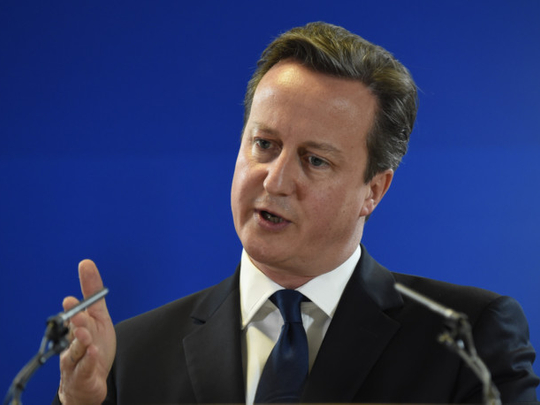
Even as Britain toys with the idea of loosening its ties to Europe, British politics looks set to become, well, more European. The proud British boast has long been that, whatever else might be said about the Sceptered Isle, it was a beacon of political stability. Others were forever held hostage to the incertitude and grubby dealmaking of coalitions; Britain’s two-party system guaranteed decisive single-party rule.
No longer. The coming general election is shaping up as a contest not so much about who will win, but about which of the main contenders will lose less badly. Last September’s independence referendum left Scotland’s place in the four-nation union of the United Kingdom far from certain. Westminister politicians often joke about Belgium’s enduring struggle to hold itself together. The grins now look a little wan.
When David Cameron formed his Conservative-led coalition with Nick Clegg’s Liberal Democrats in 2010, received opinion said that this was an interim arrangement. It was, after all, the first such peacetime deal since the 1930s. Business as usual would resume in 2015. The latest polls show the Conservatives and Labour neck and neck. More significantly, both are struggling to secure much above 30 per cent. For the old duopoly to function as intended, one needs to be a closer to 40 per cent.
The safest pre-election bet is that the surge in support for smaller parties — from the UK Independence party on the anti-immigrant right to the nationalists in Scotland and the Greens on the anarchic left — will result in another hung parliament. Whether it is Cameron or Labour’s Ed Miliband, the next prime minister is likely to lead an unstable government. The election of 2015 may be followed by that of 2016.
It is tempting to blame the voters’ temporising on the party leaders. Cameron looks the prime ministerial part, but he has always been light on convictions. Once a centrist Tory moderniser, he now chases Ukip rightward.
Miliband’s platform mimics that of Francois Hollande, the French president, in 2012. It assumes (wrongly) that the financial crash broke the capitalist mould. The Brits are small “c” conservatives. Much as they recoil from the slash-and-burn approach to the state of Cameron’s newly-ideological Tories, they have limited enthusiasm for socialism in one country.
So the rising support for smaller parties is scarcely surprising. Yet Cameron and Miliband shoulder only half the blame. The cyclical happenstances of falling living standards and a particularly weak generation of leaders has merged with deeper secular trends.
The voters’ tribal loyalties — white collars voted Tory, blue collars backed Labour — have been fraying for decades. Cameron’s party once boasted 2 million members. Membership is now closer to 100,000 with an average age of something more than 65.
The Conservatives have all but disappeared in northern England’s great cities. Outside London, Labour is barely represented in the prosperous south. The march of the Scottish National party has left the Tories with only one Westminster MP in Scotland. Now the nationalists are storming the citadels of the Scottish Labour party.
It is possible that, come polling day, voters will swing more decisively in favour of one of the two main parties. Miliband looks the more vulnerable. But a small majority for either party would scarcely alter the basic picture.
The forces behind the fractures and fragmentation of British politics reach beyond disenchantment with austerity or understandable lack of faith in today’s leaders. The bonds of the union have weakened, a generation of voters has grown up without any particular party allegiance, and distrust of elites has turned two-party into continental style five-party politics. Before Britain decides it might be a good idea to wave goodbye to the EU, it would do well to learn how the Europeans handle it.
–Financial Times








